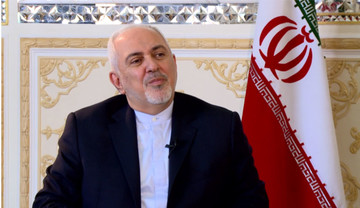Led by Zarif, the Iranian diplomacy pivoting around interaction with the world, especially neighbors, has since long ago invited the regional states to form the council for regional talks in Western Asia to create a unified will against the threats, especially terrorism and extremism.
What's more, in his visit to Baghdad in May, Zarif suggested signing a non-aggression treaty. He explained Iran's policy for creating indigenous stability and security in Western Asia and the path to implement it.
This is while certain Arab nations have taken up another path, which one could say that it is making fire next to gunpowder warehouse.
Regarding Zarif's initiative, the Islamic Republic News Agency IRNA carried out an interview with Iranian analyst Qasem Rahimi.
Rahimi said, "Some may not have realized how Zarif's suggestion to sign a non-aggression treaty is… So we need to try hard to detail the peace-pivoting suggestion."
Saying that this is the first time Iran has proposed such a thing, he added, "Iranians have always been peaceful and have not violated any country in the last two hundred years… This is really sad that the interest and the cultural and social stance of the Iranians be hurt by promoting Iranophobia in the region."
"Some regional countries, led by the Saudis, held the Mecca summits on May 30-31 to exploit the clash between Iran and the United States to further pressure Iran and promote Iranophobia in order to reach their ambitious goals. That's while one week prior to the summits, Zarif made the suggestion that could make a serious rift among the coalition-making and Iranophobia policies."
Rahimi added that a by-product of the non-aggression suggestions could be the redundancy of extra-regional forces in the Persian Gulf.
"At least, the cost of persuading public opinions of the West and the region will be very high for them."
Rahimi also said that the next important issue is that if the region welcomes the suggestion, it will prevent the region from changing into the biggest weapons stockpile in the world, which will consequently save a lot of costs that can be used in cultural, social and welfare plans and to strengthen the ties among the nations, and will in turn result in reinforcing peace in the region.



Your Comment